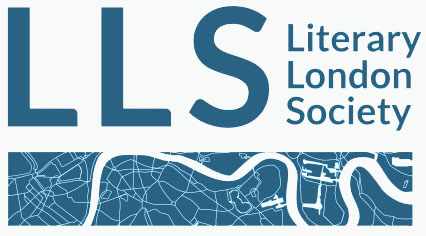Reviewed by
Colton Valentine
Yale University, USA
Who Are the Irrigators?
‘Narration is irrigation; irrigation is narration. Narratives refresh and foster growth, replenish and quench thirst, and they make their way like flowing water, unstoppably.’
So declared Marina Warner in her keynote lecture for this year’s Literary London conference, ‘Neighbours of Ours’. Her impetus for the aquatic image was an etymological insight: in Arabic, the verbs for watering and storytelling share a common root. As Warner’s talk navigated through a diverse set of currents — from Elizabeth Bishop’s poetics to Sicilian public placards — I felt a question lurking just below the surface: who are the irrigators?
Amidst the aqueous rush of a literary conference, it is only too easy to imagine that well-hydrated environments are the norm. Yet we know this is not the case. Evaporation is an unceasing and entropic process; it takes careful resource management to ensure that stories are preserved and bequeathed to later generations. Irrigation is not just the providence of the storyteller; the canals are communal, maintained by taste-makers and translators, teachers and publishers, students and parents alike.
As I began to list those irrigators, I found myself returning to the panels and lectures I had heard earlier that day. When Kristen H. Starkowski presented on minor characters in Thackeray’s Vanity Fair (1847–48), she drew on the phenomenology of Alfred Schütz and the sociology of Erving Goffman. These were methodological irrigators, thinkers providing frames and vocabularies to give Thackeray’s words new life. Elizabeth Dearnley and Michael Eades’s project for the 2017 Bloomsbury Festival, ‘The Secret Diary of Bloomsbury’, brought other personnel to the fore: those who produced the materials for composition — those bird boxes, diaries, and pens; the city officials and vendors who welcomed the installations; the publishers who might one day codify the secrets into volume form.1 Their talk followed one by Elena Nistor on Bloomsbury poets, and between the two, I saw that most critical, but oft submerged, irrigator appear: the reader. It is the reader who must ultimately drink the literature of Bloomsbury, whose citations and rewritings of Mrs Dalloway (1925) ensure the bone-chilling current of Woolf’s river flows on. Without their conversations, their letters and secrets, London’s literary aquascape would soon run dry. I was reminded of a couplet from John Masefield’s poem ‘Biography’ (1913) that Nistor had cited: ‘Making that room our Chapter, our one mind | Where all that this world soiled should be refined’.
The conversational art of turning ‘room’ to ‘Chapter’ brought me back to Alison Blunt’s plenary lecture on ‘Home-City-Street’, a partnership between Queen Mary University and the Geffrye Museum that studies the many meanings and experiences of home on East London’s Kingsland Road. She opened the talk by asking us to think of where the ‘literary’ might be located in that project. For me, it came from collaboration — from the interviewees brave enough to recount their tales; from the interviewers who solicit, collect, and preserve those evanescent memories; from the museum curators that conceive of collections and offer spaces for engagement events. At one point, Blunt quoted participant Emily: ‘There’s something really nice about being able to connect to other people’s worlds that are really different from your own’. With an allusion to the Napoleonic Wars (1803–1815), the line could have easily appeared in Vanity Fair, as it captured precisely Starkowski’s claim that we manage multiple realities at once.
The afternoon session offered ever more chances for ‘multiple reality management’. In his new materialist reading of Arthur Machen, Adrian Tait challenged us to explore continuities between entanglement theory and Machen’s so-called ‘occult knowledge’. It was a case where a storyteller’s waters had grown slightly stagnant, cut off from the central canals. Machen’s reservoir waits for someone to dig a new rivulet — and what better tool than entanglement theory. In his reading of John Sommerfield’s May Day (1936), meanwhile, Joseph Hankinson took aim at another case of canon construction. By grounding the notion of ‘collective style’ within Sommerfield’s syntax and semantics, he challenged a tendency to group May Day with the high modernists — judiciously subdividing a torrent into two more precisely-defined streams. The panel closed with Ezechi Onyerionwu’s reading of Nollywood portrayals of London. It was an inter-medial realm perfectly suited to visualize co-irrigation. Film only floods when the rills of writers and actors, costume designers and producers, marketers and viewers all convene.
It was on these cascades that I sailed into Warner’s lecture — through these flows that I heard her open with an allusion to ‘today’s flows of people’. In wading, again, through the conference papers I had heard that day, a final set of irrigators came forth: the participants. Each talk digs its own rivulet, yes, but it also recuts the ones that have come before. Some pair new theory with old text; others challenge idées reçues; and still others bring the marginal to the current’s centre. When Warner quoted Ursula Le Guin’s description of storytellers as ‘realists of larger reality’, I chuckled, thinking what fodder the quote would be for scholar polemics on ‘literary realism’. Academic debate can be divisive and fussy, pedantic and polemic — but to reject those swells is to miss their collective quench. Evaporation is happening all around us. We must, in Masefield’s terms, keep ‘making that room our Chapter’; we must keep being irrigators.
Notes
- More information about ‘The Secret Diary of Bloomsbury’ is available on Michael Eades’s website: <https://michaeleades.net/2017/11/05/the-secret-diary-of-bloomsbury-oct-2017/>.
Note on Contributor
Colton Valentine is a PhD candidate in the Department of English at Yale University. His research focuses on nineteenth-century cosmopolitanisms, travel writing, and the reception of French literature in the Victorian period. Beyond his academic work, Colton has written for The Harvard Advocate and Crimson, The Huffington Post, and the LA Review of Books. He was the recipient of a postgraduate bursary from the Literary London Society to attend the ‘Neighbours of Ours’ conference.
